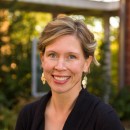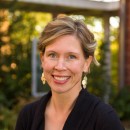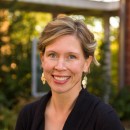Page 22 • (1,269 results in 0.031 seconds)
-
Speakers List and Schedule for The Countenance of Hope Symposium:Thursday, February 25thFriday, February 26thThursday, February 25th8:15-9:45am — Community Forum and Breakfast (Scandinavian Cultural Center) 9:55-11:40am — “Making Hope Happen”: Perspectives from Psychology and Education (Chris Knutzen Hall) Making Hope Happen: Shining a light on one of the most powerful, and most misunderstood, emotional forces in our lives Dr. Shane Lopez, Gallup Senior Scientist and Research Director of the
-
many years, often crowned by the head of the Associated Student Body. In the 1990s, the Scandinavian Cultural Center took over running the program, with the leadership and assistance of Kerstin Ringdahl, University Archivist and authentic Swede. She secured sponsorship of the Lucia Program by turning to the biggest Swedish company in North America, IKEA! IKEA generously supported the Lucia program by providing food, covering the costs of the program, and giving the PLU student participants in the
-

art of the Cold War period Art History Biography Heather joined the Department of Art and Design in 2007. She earned her B.A. in Art History and German from Hood College and her M.A. and Ph.D. in Art History from the University of Texas at Austin. Her specialization is the German art of the Cold War period, and she is interested in all aspects of German cultural and history. Her research and publications are focused on the role of the artist in public discourse in East and West Germany, as well as
-

art of the Cold War period Art History Biography Heather joined the Department of Art and Design in 2007. She earned her B.A. in Art History and German from Hood College and her M.A. and Ph.D. in Art History from the University of Texas at Austin. Her specialization is the German art of the Cold War period, and she is interested in all aspects of German cultural and history. Her research and publications are focused on the role of the artist in public discourse in East and West Germany, as well as
-

art of the Cold War period Art History Biography Heather joined the Department of Art and Design in 2007. She earned her B.A. in Art History and German from Hood College and her M.A. and Ph.D. in Art History from the University of Texas at Austin. Her specialization is the German art of the Cold War period, and she is interested in all aspects of German cultural and history. Her research and publications are focused on the role of the artist in public discourse in East and West Germany, as well as
-
Get InvolvedBecome a MemberMembers of the Scandinavian Cultural Center receive personal invitations to members-only events, discounted ticket prices to paid events, a year’s subscription to the Scandinavian Scene newsletter (published quarterly), and a year’s subscription to the ResoLute (published bi-annually). But perhaps the most important reason to become a member is the opportunity to join others who share your interest and desire in promoting and preserving Nordic heritage. Membership
-
school; an interview of the student by a PLU faculty member who speaks the target language in question with a follow-up message from the faculty member to the Chair of Global & Cultural Studies (253-535-7216 or lang@plu.edu) describing the students language proficiency level; other comparable evidence (proficiency test by area community college or university in the target language, etc.) upon consultation with the Chair of Global & Cultural Studies. Students who fulfill their CAS language requirement
-
government service in 1952 to devote herself to her writing. She wrote several other articles designed to teach people about the wonder and beauty of the living world, including “Help Your Child to Wonder,” (1956) and “Our Ever-Changing Shore” (1957), and planned another book on the ecology of life. Embedded within all of Carson’s writing was the view that human beings were but one part of nature distinguished primarily by their power to alter it, in some cases irreversibly. Disturbed by the profligate
-
attended Union Theological Seminary in New York for his masters. He received his bachelors of arts degree from Earlham Collage in Indiana. He will publish the article “Thinking Globally and Thinking Locally: Ecology, Subsidiary and Multiscalar Environmentalism” in the Journal for the Study of Religion in 2008. He has spoken extensively on environmentalism and spirituality, including a lecture in May titled “Can Sacramentalism Save Biodiversity?” that was presented at the American Academy of Religion
-
introductory courses: BIOL 225: Molecules, Cells and Organisms BIOL 226: Genes, Evolution, Diversity and Ecology You might also consider taking some of the following upper division courses: BIOL 330: Genetics BIOL 342: Microbiology BIOL 352: Comparative Anatomy BIOL 448: Immunology BIOL 453: Mammalian Physiology Often PA schools require you to take a course in microbiology, anatomy and/or physiology. Please make sure you look at the requirements of individual schools, particularly whether they require a
Do you have any feedback for us? If so, feel free to use our Feedback Form.


